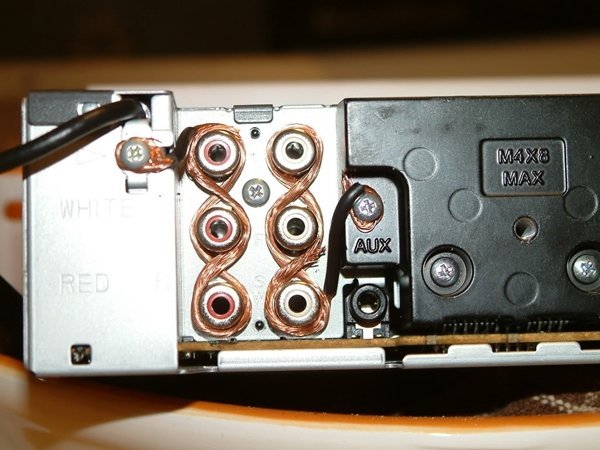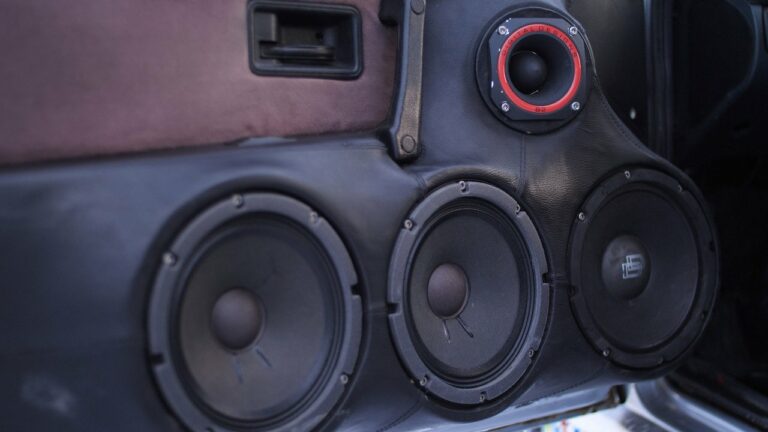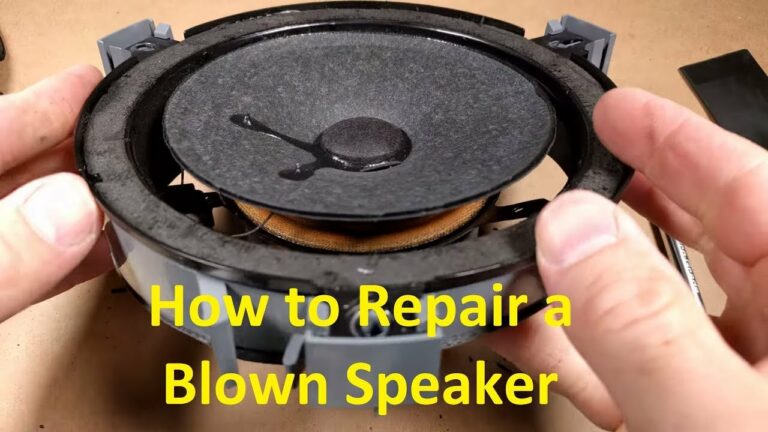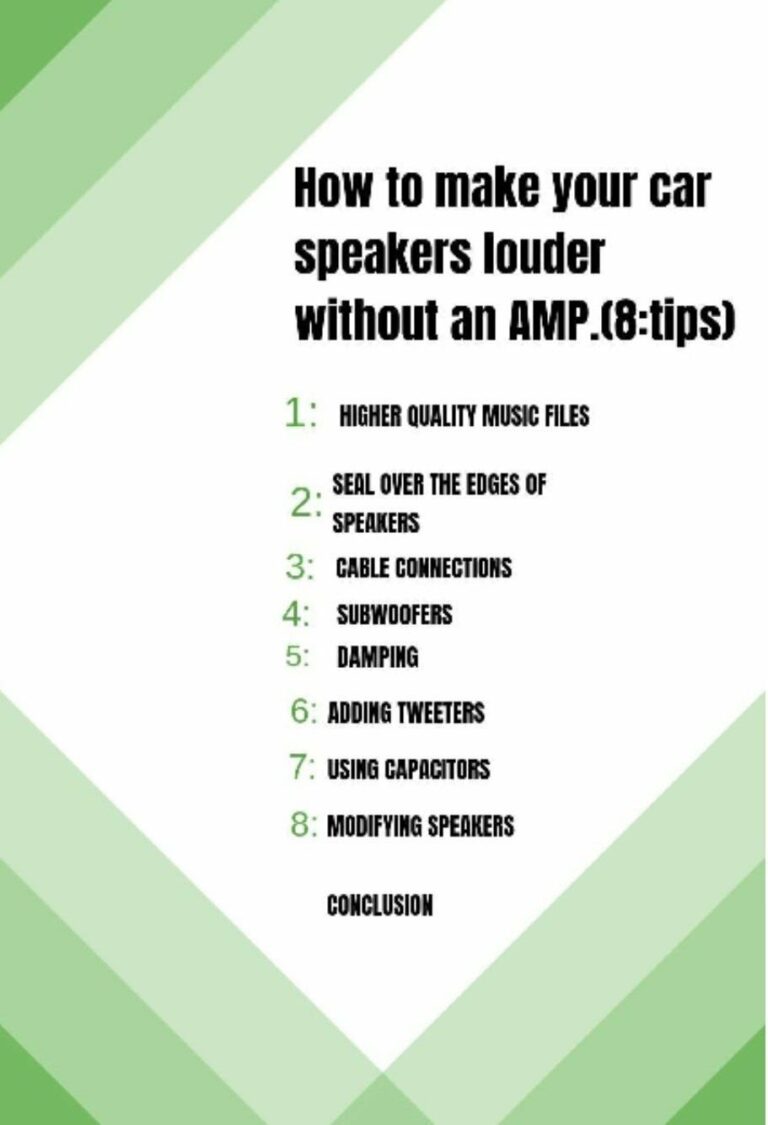How to Fix a Ground Loop in Car Audio
Are you tired of the annoying humming noise coming from your car audio system? You’re not alone! Ground loops can be a common issue that affects the sound quality in car audio setups. But don’t worry, we’ve got you covered with a solution on how to fix a ground loop in car audio. By following a few simple steps and utilizing the right tools, you can get rid of that pesky hum and enjoy a clean and crisp audio experience while driving. So, let’s dive into the world of troubleshooting and learn how to fix a ground loop in car audio.
How to Fix a Ground Loop in Car Audio
Having a ground loop in your car audio system can be frustrating. It can cause unwanted noise, such as humming or buzzing, and diminish the overall sound quality. However, fixing a ground loop is not as complicated as it may seem. In this article, we will guide you through the process of troubleshooting and resolving ground loop issues in your car audio system. By following these steps, you will be able to enjoy a clean and noise-free audio experience during your drives.
Understanding Ground Loops
Before we dive into the solutions, let’s first understand what a ground loop is and how it affects your car audio system.
A ground loop occurs when there are two or more grounding paths for an electrical current. In a car audio setup, this can happen when different components are grounded at different points, creating a loop for the current to flow through. The loop acts as an antenna, picking up electromagnetic interference (EMI) from the vehicle’s electrical system or other external sources. This interference manifests as unwanted noise in your audio playback.
The Effects of Ground Loops
A ground loop can introduce various types of noise into your car audio system. Commonly reported issues include:
1. Humming or buzzing sounds: These are often caused by EMI interference picked up by the ground loop.
2. Alternator whine: This noise is typically associated with a specific frequency and can change with the engine’s RPM.
3. Engine noise: Ground loops can amplify engine noise, making it audible through the speakers.
Now that we have a basic understanding of the problem, let’s move on to solutions for fixing ground loops in car audio.
Identifying Ground Loop Issues
The first step in fixing a ground loop is identifying whether it is the root cause of the audio issues you’re experiencing. Here are some indicators that suggest you have a ground loop problem:
Noise Correlated with Engine RPM
If you notice noises that vary with your engine’s RPM, such as a whining noise that increases and decreases with acceleration, there’s a good chance you have a ground loop issue.
Noise Present Regardless of Volume Level
Ground loop-related noise is usually present regardless of the audio system’s volume level. If the noise persists even when the volume is turned all the way down, it’s likely caused by a ground loop.
Noise Across Multiple Audio Sources
If you hear the noise across different audio sources, such as the radio, CD player, or auxiliary input, it’s another sign of a ground loop issue.
Now that you’ve identified the symptoms of a ground loop, let’s move on to the troubleshooting process.
Troubleshooting Ground Loop Issues
To effectively troubleshoot and fix a ground loop, follow these steps:
Step 1: Check the Grounding Connections
Start by inspecting the grounding connections of all the components in your car audio system. Ensure that the ground wires are securely connected to a clean and solid metal surface. Any loose or corroded connections can contribute to ground loop problems.
Step 2: Use Isolation Techniques
Isolating the audio signals can help eliminate ground loop noise. You can use devices such as ground loop isolators or audio transformers to break the loop and prevent noise from being transmitted through the audio system.
Step 3: Re-route or Separate Cables
Sometimes, simply re-routing or separating the cables can reduce or eliminate ground loop noise. Keep power cables and audio cables separate from each other to minimize the chances of interference.
Step 4: Disconnect Auxiliary Devices
If you have auxiliary devices connected to your car audio system, such as portable music players or cell phones, disconnect them one by one to identify if any of them are causing the ground loop issue. Faulty or poorly grounded auxiliary devices can introduce noise into the system.
Step 5: Check the Vehicle’s Electrical System
In some cases, the ground loop noise may be caused by issues within the vehicle’s electrical system. Check for any faulty electrical components, such as spark plugs or alternators, that could be generating interference.
Step 6: Consult a Professional
If you’ve exhausted all troubleshooting options and are still experiencing ground loop issues, it may be beneficial to consult a professional car audio installer or technician. They can provide expert advice and help resolve the problem using more advanced techniques.
Section 4: Preventing Ground Loop Issues
While troubleshooting and fixing ground loop issues is essential, it’s equally important to take preventive measures to minimize the chances of experiencing them in the first place. Here are some tips to prevent ground loops:
1. Use Proper Grounding Techniques: Ensure that all components in your car audio system are correctly grounded. Use dedicated ground points and clean connections to minimize the risk of ground loops.
2. Separate Power and Audio Cables: Keep power cables and audio cables separate from each other during installation to prevent interference.
3. Use Shielded Cables: Opt for shielded audio cables that can help reduce the chances of electromagnetic interference.
4. Avoid Grounding to Sensitive Components: Avoid grounding your car audio system to sensitive components, such as the vehicle’s computer or engine control unit (ECU).
Fixing a ground loop in your car audio system may require some troubleshooting and adjustments, but the process is relatively straightforward. By following the steps outlined in this article, you can effectively diagnose, fix, and prevent ground loop issues. Remember to check grounding connections, use isolation techniques, re-route or separate cables, and consult a professional if needed. With a little effort, you’ll be able to enjoy high-quality audio without the nuisance of ground loop noise in your car.
BUZZ, WHINE, HISS? How to FIX Car Audio Noise!
Frequently Asked Questions
How can I fix a ground loop in my car audio system?
When facing a ground loop issue in your car audio system, there are several steps you can take to resolve it:
What is a ground loop and how does it affect car audio?
A ground loop is a situation where there are multiple paths to ground, causing unwanted electrical current to flow through the audio signal. This can result in a humming or buzzing noise in the audio system.
Can using a ground loop isolator solve the problem?
Yes, a ground loop isolator can be an effective solution. It breaks the ground loop by inserting a transformer into the audio signal path, preventing the unwanted electrical current from flowing and eliminating the noise.
What other methods can I try to fix a ground loop in my car audio?
There are a few other methods you can attempt. One is to check the grounding connections in your audio system and make sure they are secure and properly connected. Another option is to use shielded cables to minimize the chances of interference.
Is it recommended to use a separate ground wire for the audio system?
In some cases, using a separate ground wire for the audio system can help. This involves running a dedicated ground wire from the audio system to a common ground point in the car, bypassing any potential ground loop issues.
Should I consult a professional if I am unable to fix the ground loop myself?
If you have tried the aforementioned methods and are still unable to fix the ground loop, it is advisable to consult a professional car audio technician. They have the expertise and specialized tools to diagnose and resolve complex audio system issues.
Final Thoughts
In conclusion, fixing a ground loop in car audio is crucial to ensure high-quality sound without any unwanted noise interference. By following the steps outlined in this article, such as checking and adjusting the ground connections, using isolation transformers, or installing a ground loop isolator, car audio enthusiasts can effectively eliminate ground loop issues. Remember to carefully diagnose the problem and apply the appropriate solution, thereby enhancing the overall audio experience in your vehicle. With the tips provided in this guide, troubleshooting and resolving ground loop problems in car audio systems becomes a manageable task.






